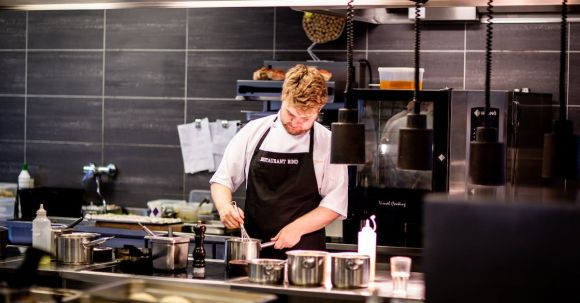Food safety is of utmost importance in the restaurant industry. Ensuring that customers are served safe and hygienic food is not only a legal requirement but also essential for maintaining a good reputation. By following best practices for food safety, restaurants can protect their customers and their business. In this article, we will explore some of the key practices that every restaurant should implement.
Staff Training and Education
One of the fundamental pillars of food safety in restaurants is ensuring that all staff members are properly trained and educated on safe food handling practices. This includes training on topics such as personal hygiene, cross-contamination prevention, and proper cleaning and sanitizing procedures. By investing in staff training and education, restaurants can empower their employees to make informed decisions and take necessary precautions to prevent foodborne illnesses.
Regular Cleaning and Sanitizing
Maintaining a clean and sanitary environment is crucial for preventing the spread of harmful bacteria and viruses. Restaurants should establish a regular cleaning schedule that includes thorough cleaning of all surfaces, equipment, utensils, and food preparation areas. Additionally, proper sanitization should be carried out using appropriate cleaning agents to kill any remaining bacteria or viruses. By implementing a robust cleaning and sanitizing routine, restaurants can greatly reduce the risk of food contamination.
Proper Food Storage
Correctly storing food is another essential practice for ensuring food safety in restaurants. Perishable items should be stored at the appropriate temperatures to prevent the growth of bacteria. Refrigerators and freezers should be regularly monitored to ensure they are functioning correctly. Additionally, food should be properly labeled and organized to prevent cross-contamination. By following proper food storage practices, restaurants can prolong the shelf life of ingredients and maintain the quality and safety of their food.
Regular Inspections and Audits
To ensure ongoing compliance with food safety regulations, restaurants should conduct regular inspections and audits. This can be done internally or by hiring a third-party auditor. Inspections should cover all aspects of food safety, including personal hygiene, food handling practices, cleaning procedures, and storage conditions. By regularly assessing their operations, restaurants can identify any potential issues and take corrective actions to maintain a high level of food safety.
Effective Supply Chain Management
Food safety in restaurants is not limited to the premises; it extends to the entire supply chain. Restaurants should work closely with their suppliers to ensure that all ingredients and products meet the necessary safety standards. This includes verifying the quality and origin of ingredients, as well as ensuring proper handling and transportation practices. By establishing strong relationships with reliable suppliers and implementing effective supply chain management, restaurants can minimize the risk of receiving contaminated or unsafe food.
Continuous Improvement and Adaptation
Lastly, it is important for restaurants to continuously strive for improvement and adapt to changing food safety guidelines and practices. This can be achieved through ongoing training, staying up to date with industry news and regulations, and actively seeking customer feedback. By embracing a culture of continuous improvement, restaurants can consistently enhance their food safety practices and provide a safe dining experience for their customers.
In conclusion, implementing best practices for food safety is crucial for restaurants to protect their customers and their reputation. By focusing on staff training, regular cleaning and sanitizing, proper food storage, inspections and audits, effective supply chain management, and continuous improvement, restaurants can establish a robust food safety framework. By prioritizing food safety, restaurants can ensure that their customers enjoy safe and hygienic meals, thereby fostering trust and loyalty.
